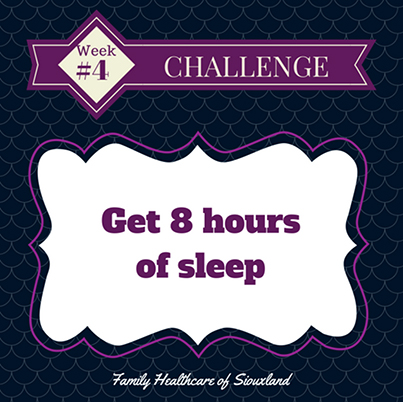Ask any mother and father of a newborn how important sleep is and they will tell you: VERY.
Sleep deprivation has been blamed for serious health problems that include heart disease, high blood pressures, diabetes, and stroke. Without proper sleep, your brain doesn’t work properly. Your brain needs its sleep cycles to catalog memories and experiences; without proper sleep, learning takes longer, concentration gets slippery, and it becomes hard to pay attention. Getting fewer than 6 hours of sleep a night affects your sex drive, your metabolism, and your judgment—and not in the good ways.
So let’s tackle this important part of life with a commitment to securing as many hours of uninterrupted sleep as possible this week. Here are some tips to get you started.
- Stick to a sleep schedule. What works for kids, works for adults. Go to bed and get up at the same time every single day, including holidays and weekends.
- Give it 15 and the try again. If you can’t fall asleep within 15 minutes of lying down, get up and do something relaxing (reading, meditating, looking at stars) and then try again. Avoid stressing about not falling asleep, which only makes the problem worse.
- Stop drinking caffeine at noon. Caffeine can take hours to wear off and can cover up the signs of real fatigue. If you can, try to wean yourself off caffeinated beverages to let your body feel how tired it actually is; you may find the sleep you need will come more easily.
- Limit alcohol. Alcohol may increase drowsiness, but the sleep that follows isn’t that great. Try to limit the amount of alcohol consumed within three hours of bedtime.
- Control stressors. It’s hard to relax with a to-do list swimming around your ears. Keep a pad of paper next to the bed and write down things as they come to you. This will remove the stress that you’ll forget to do something and allow you to hand it over to another day. While you’re writing things down, jot down what you are grateful for; studies have proven that a life of gratitude is also one filled with restful sleep.
- Get physical. Fresh air and physical exercise are great ways to encourage your body to fall asleep faster and more deeply. Try not to exercise too close to bedtime, however; in some people, it ends up having an energizing effect. (If this is you, consider switching your morning coffee with a morning run).
And if you are parents of a newborn, go to bed when the baby does. Seriously. Nothing looks as good as sleep feels (not even folded laundry or clean dishes).


